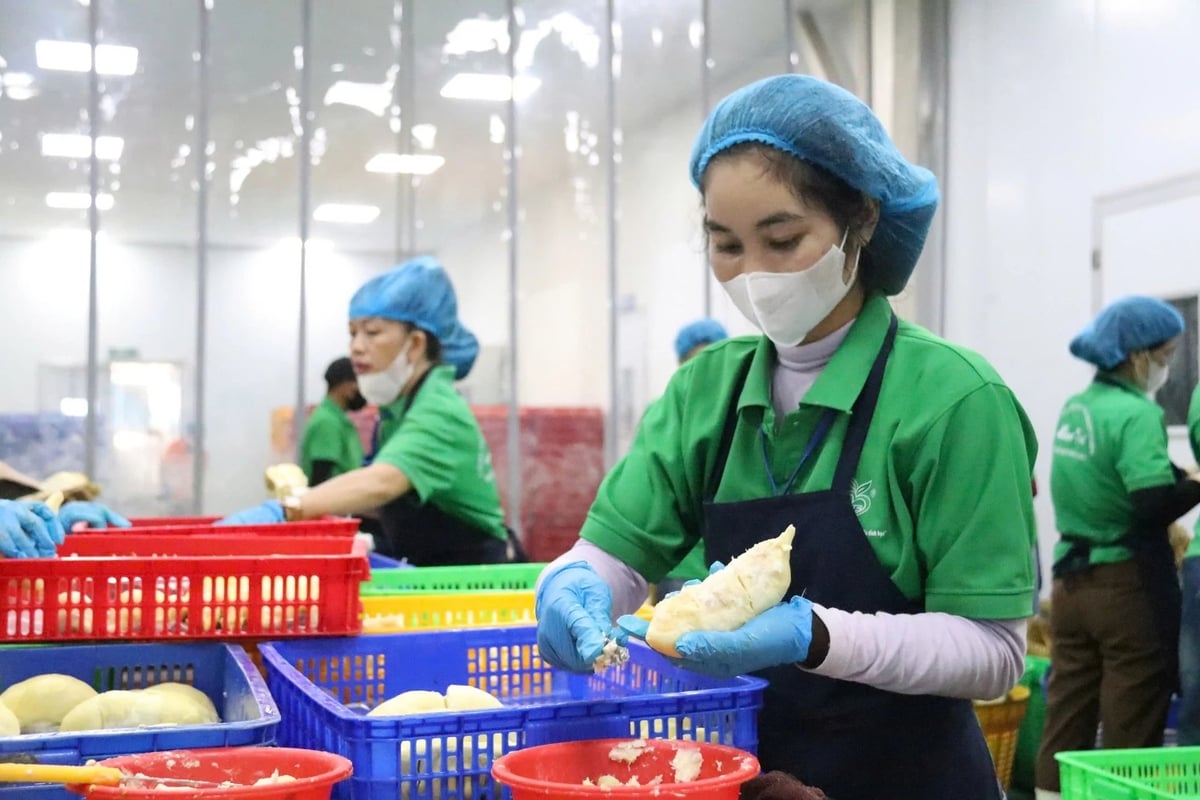December 10, 2025 | 22:33 GMT +7
December 10, 2025 | 22:33 GMT +7
Hotline: 0913.378.918
December 10, 2025 | 22:33 GMT +7
Hotline: 0913.378.918
According to the Vietnam Fruit and Vegetable Association (VINAFRUIT), fruit and vegetable exports in March were estimated at $421 million, down 10.5% compared to the same period last year. This marks the third consecutive month of declining export turnover, in stark contrast to 2024 when the industry surged from the beginning of the year and maintained strong growth throughout all 12 months.
Accumulated over the first 3 months of 2025, fruit and vegetable exports reached only $ 1.1 billion, a 13.2% decrease compared to the same period last year.
Explaining the cause of this decline, Dang Phuc Nguyen, General Secretary of the Vietnam Fruit and Vegetable Association, stated that durian exports had dropped sharply in the early months of the year. Currently, the Chinese market is inspecting 100% of durian shipments entering the country for residues of Auramine O and cadmium. Meanwhile, Vietnamese exports are only tested based on a sampling rate. When the goods arrive at the Chinese border, they are re-tested, and if they fail to meet the standards, they are sent back. This has made it difficult not only for fresh durian but also for frozen durian products, discouraging many businesses from entering the market.

Vegetable exports down 13.2% compared to the same period last year.
To boost fruit and vegetable exports in 2025, Nguyen suggested that in addition to China, businesses should expand exports to other markets such as the United States, Japan, and South Korea.
In reality, during the first two months of 2025, fruit and vegetable exports to the United States continued to increase by 65.5% compared to the same period in 2024, highlighting the opportunity for Vietnamese produce to expand in the U.S. market.
Besides the U.S., East Asian countries such as South Korea and Japan also present significant potential. In 2024, South Korea imported $315 million worth of fruits and vegetables from Vietnam, a 39% increase, making it Vietnam's third-largest market after China and the U.S.
According to Nguyen, among Vietnam's ten largest fruit and vegetable export markets, East Asia has more advantages compared to the U.S. The closer geographical distance shortens transportation time, reduces logistics costs, and enables faster response to consumer demand. These are key factors that favour Vietnam’s fruit and vegetable exports to this region.
$ 1 = VND 25.370 - Source: Vietcombank.
Translated by Hoang Duy

(VAN) Lang Son agricultural products are upgrading planting-area standards, increasing deep processing, and expanding linkages to move toward sustainable exports.

(VAN) Despite numerous challenges, Vietnam's key seafood products are maintaining strong momentum, setting the stage for full-year exports to potentially reach USD 11 billion.

(VAN) The signing of a protocol between Viet Nam and China on the export of fresh jackfruit represents a significant milestone in agricultural trade cooperation between the two countries.

(VAN) On November 27, the Ninh Binh Department of Agriculture and Environment and the Institute for Green Growth Research organized a training course on greenhouse gas inventory for businesses.

(VAN) China’s cooking oil is suddenly flooding into India. It all comes down to a soybean surplus that Beijing doesn’t quite know what to do with.

(VAN) An Giang promotes supply-demand connections, standardizes quality and builds value chains, creating a foundation for sustainable bird’s nest development and aiming to expand exports.
/2025/11/24/5339-4-nongnghiep-075331.jpg)
(VAN) Recently, the conference on 'Sustainable Fisheries Linkage Chain - Tilapia for Export' took place in Tien Hai commune, Hung Yen province.